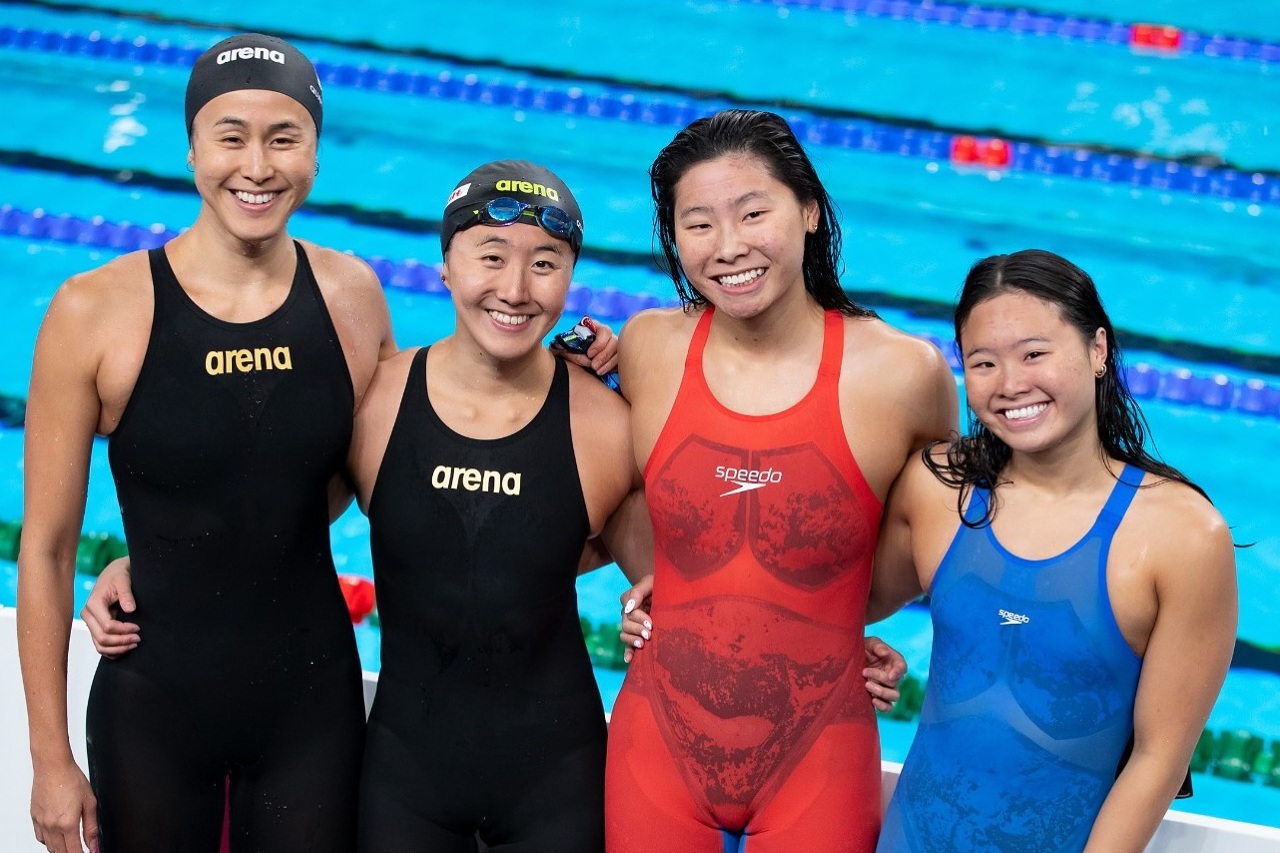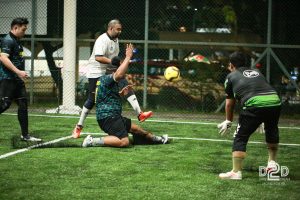Top Image: TeamSG / Facebook
A couple of days ago, veteran swimmer Quah Ting Wen was packing for Paris.
After setting a new national record in Doha, the Quah and Sim sisters qualified for the Women’s 4x100m mixed medley relay—the first time Singapore has ever qualified for an Olympic relay on merit. It would have been her swansong; a fitting farewell to one of Singapore’s most decorated athletes.
That is, until World Aquatics (a global body overseeing all aquatic sports) extended an invitation to young swimmer Gan Ching Hwee to compete in the Olympics. Long story short, Singapore can’t field both Gan and Quah.
Another swimmer qualifying should have been a huge win for Singapore. But the past 48 hours have somehow transformed this into a tale of chronic indecisiveness, public speculation, and broken dreams.
The debate has centred around Quah vs Gan; whether Singapore Aquatics (SAQ) should field a swimmer who’s made history in her arena or an up-and-coming swimmer who’s about to begin hers.
But we need to remember: the ensuing mess has to do with the governing bodies who have had to make difficult calls. How exactly did we get here? How could commitments be made one day and publicly retracted the next?
And what might happen to our budding sports scene if this becomes a trend?
Rinse and Repeat
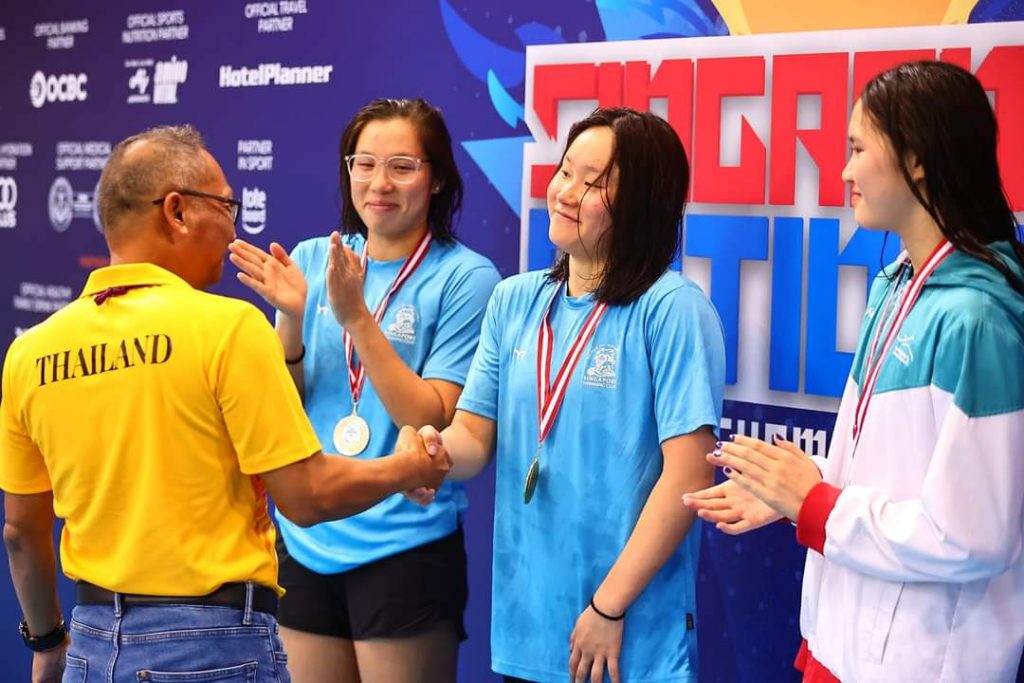
After all, this isn’t the first time SAQ’s had to choose between Gan or Quah.
During the 2021 Tokyo Olympics, SAQ initially fielded Quah on a universality placement, which is essentially a ‘lifeline’ to give underrepresented nations a chance to compete. Literally two days after, Gan got a ‘B’ cut invitation—typically reallocated invitations sent to swimmers who don’t make the Olympic Qualifying Time (or ‘A’ cut). It’s the very same ‘B’ cut invitation that she got this year.
So SAQ changed their minds. An official invitation takes priority over the ‘lifeline’, right? They announced they were sending Gan instead.
Later, when Quah pointed out that— according to World Aquatics—her universality placement technically took precedence over a reallocated invite, SAQ flip-flopped again.
It was unequivocally their bad. Coaches pointed out that SAQ had wrongly assumed they wouldn’t get any more surprise invites. And even then, SAQ’s selection criteria had not been “watertight”, evidenced by how “the selection and appeals committee could not agree on who to send”.
Three years later, here we are again.
The quartet were originally set to go to Paris on a privilege: World Aquatics had made an exception for Singapore to send three relay-only swimmers instead of the usual two, allowing Quah Ting Wen, alongside her sister and Levenia Sim, to participate in the Olympics.
World Aquatics confirmed their spot on July 4th, which Quah had in writing. Then Gan was extended a ‘B’ cut invitation, leading to the same distressing dilemma from three years ago.
Furthermore, both seemed to have only been told at the eleventh hour that the replacement was a possibility.
One wonders how this exact situation could have been allowed to happen again: a ‘surprise’ invite (that logically should have been expected by now) causing a flip-flop between two swimmers.
In 2021, the SAQ promised to avoid a public tussle between athletes and “pre-empt similar situations in the future”. You’d think sports associations would make their selection clear to both audiences and athletes, or at the very least, gave Quah and Gan a heads-up on the possible swap.
First Gan, now Quah. This repeated mistake makes it clear that these can no longer be considered one-off incidents.
Turning the Tides
Apart from swimming, this has happened in other sports too.

In May earlier this year, floorballer Ishwarpal Singh was told unceremoniously that he’d have no game time at the World Championship qualifier just 48 hours before the team flew. Like Quah, he was axed at the last second despite meeting the selection criteria. His coaches cited a potential lack of skill, an issue Singh had been kept in the dark about for months.
Just last year, Fencing Singapore excluded decorated fencer Samson Lee from the SEA Games. While he’d “rightfully qualified” for both individual and team events, he had missed three practices to care for his ill father and wife, who had just given birth. It was honestly amazing that one of our sportsmen could still qualify with so much going on in his life. It didn’t matter though—he was kicked off the team.
The key thread tying these incidents together is that we treat our sportsmen as dispensable. They’re told to do this for Singapore’s honour and glory, so they make huge personal and financial sacrifices to put our country on the map.
In return, they don’t seem to have been extended this same courtesy and care. Multiple athletes have done their due diligence and qualified for international competitions, only for their management to suddenly withdraw them for reasons that weren’t previously made clear.
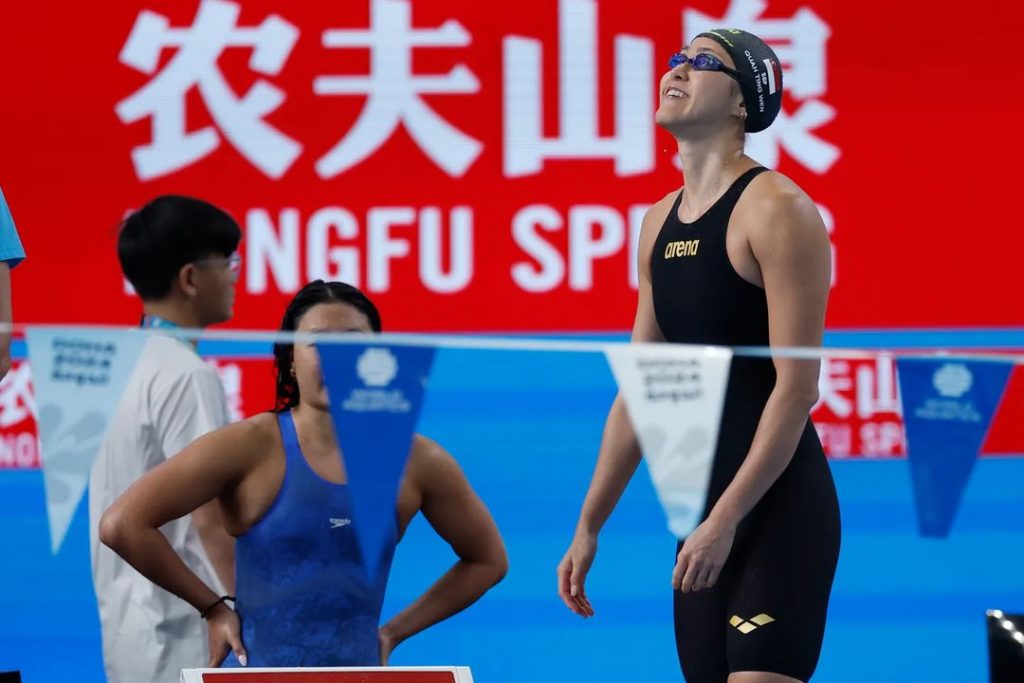
We’re not saying that associations cut athletes willy-nilly. On the contrary, there can be valid reasons to withdraw and replace athletes on a team. Associations are responsible for looking at the big picture. However, these issues reveal how messy communication is between athletes and sporting bodies. It’s a real problem when athletes are barely aware of how precarious their spots really are.
It goes without saying that sports is an unstable career. You will get replaced if you aren’t performing well; that’s part and parcel of any job. But this lack of communication simply makes the career all the more unattractive, or as Quah puts it, it “erodes the trust” athletes have in our sports system.
Troubled Waters

As with any Singaporean controversy, public conversation has deteriorated to the lowest form: name-calling. Some have taken to calling Quah “entitled” for lodging the appeal; people have attacked her age, her family’s swimming legacy, and even questioned her ability by throwing shade at her false start in the Asian Games. These remarks are ostensibly in defence of Gan, especially as people have started characterising the issue as a rivalry between the swimmers.
A lot of this doesn’t really make sense.
On one hand, the public is throwing around terms like ‘A’ cut, ‘B’ cut, and trying to compare their timings. On the other, the Olympics rules are undeniably confusing. Very few of us are equipped to understand the technicalities—decoding the rules to decide who goes to the Olympics isn’t our job. It’s SAQ’s job, or any sports association, really.
More importantly, pitting them against each other obscures the real injustices done to Gan and Quah. Both swimmers, on separate occasions, worked hard for a spot at the Olympics, only to have it taken away from them.
The negative response also unravels another unintended consequence of SAQ’s fickleness: The Singaporean public is unable to celebrate our sporting achievements. Gan’s record-breaking 1500m timing, our relay team making history—all of that has been buried under the mountain of confusion and anger.
Controversies like this don’t just hurt athletes. It hurts our local audiences. It hurts the reputation of our sporting bodies. It hurts the whole sporting scene.
Sink or Swim
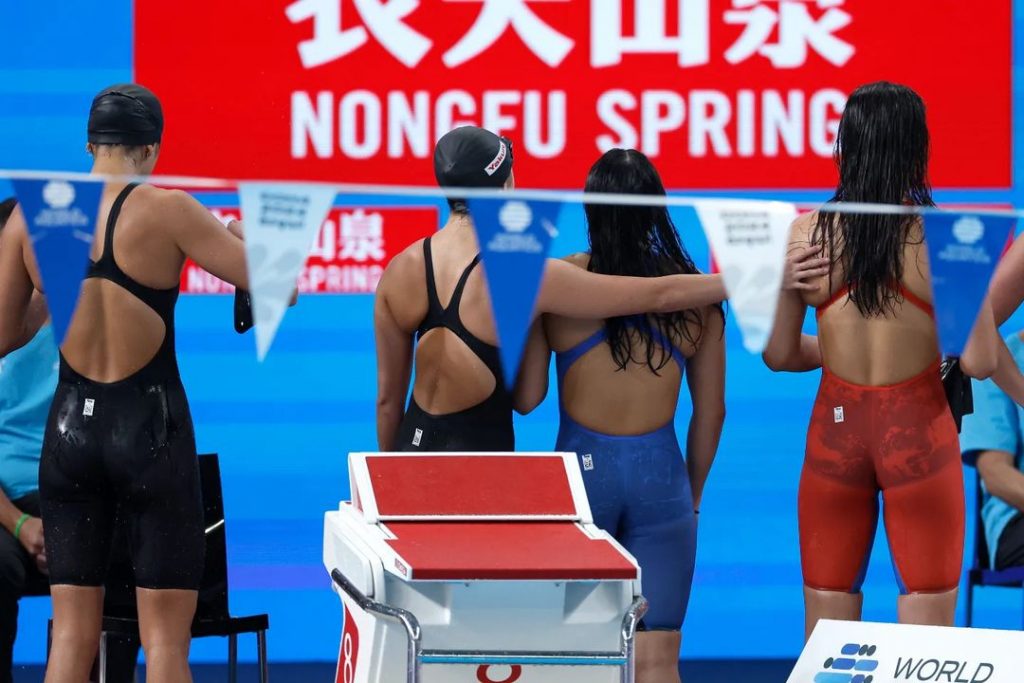
What’s done is done. At this point, it’s not about fighting over which swimmer is better.
Crucially, it’s about understanding: how are athletes supposed to make big strides in sports when sports associations make their already unstable careers even more precarious?
The discussion following this incident has to be about how we respect athletes going forward. This means honouring commitments with athletes once they’ve been made. It means crafting a less fickle selection criteria. It also means having difficult conversations with athletes about their conduct and being transparent about the possibility of replacement.
Maybe what we’re seeing here is a ‘happy problem’. Perhaps our sports scene has progressed to a point where we’re now having to choose between two extremely talented swimmers as opposed to having none at all.
But as an increasing number of sportsmen make the cut for life-changing, career-making international sports events like the Olympics, sports associations have to make difficult choices between deserving athletes—it’s necessary to be picky. But that pickiness has to be consistent and clearly communicated.
For Quah, this controversy could possibly mark the end of her Olympic career. But for our sporting organisations, the sustainability of our sports scene rests upon their willingness to exercise wisdom and adapt—to sink or swim.

